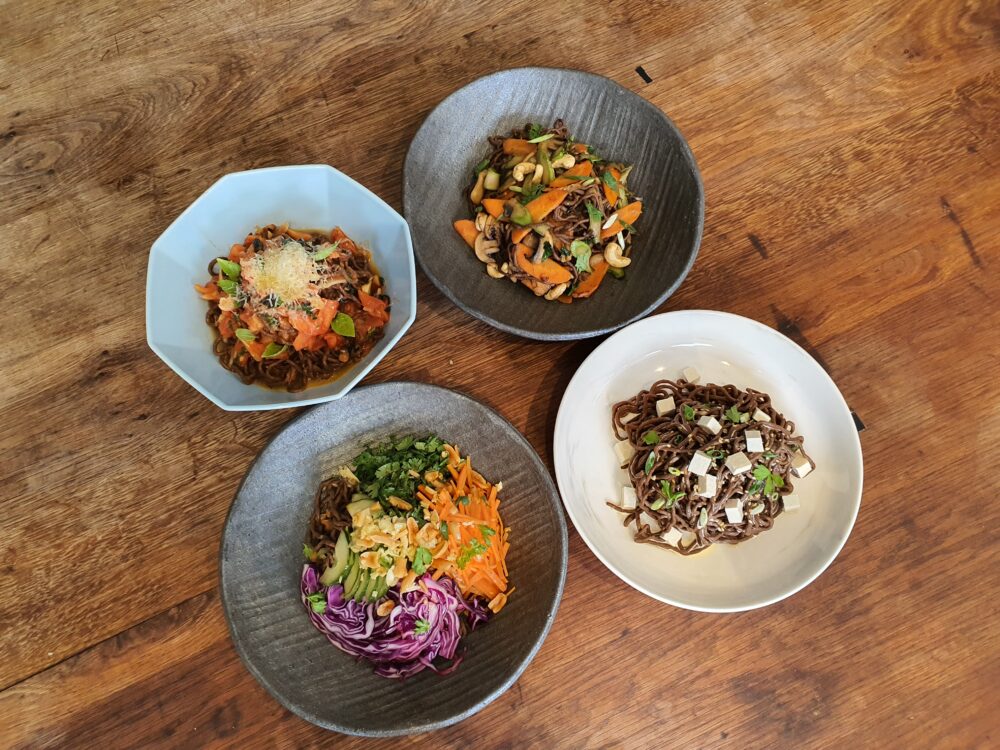When Florence Leong (BBA 1986) joined the local technology start-up scene a decade ago, people thought she was a scientist or an engineer. “They don’t expect a business graduate to be in the deep tech area,” said Florence, who observed that it was only in recent years that technology start-ups showed a greater appreciation for business input.
Florence worked in the finance, pharmaceutical and venture capital industries before she started a consultancy firm and mentored start-ups.
She was the Executive Advisor in NUS Enterprise, supporting the commercialisation of NUS-developed life science technologies, when she met Professor Huang Dejian from NUS Food Science and Technology programme. Later, they co-founded Kosmode Health, with a mission to expand access to health from nature by valorising food processing waste for human nutrition.
Upvaluing food processing waste
Barley beans are used in beer and energy drinks production. Starch is removed from the beans and included in the drinks, while the waste product—known as spent barley grains—is used in fertilisers and animal feed. In most cases, it just goes to the landfill.
But these spent barley grains are enriched with protein & fibre. In Florence’s view, they have a greater value beyond becoming fertilisers and animal feed. Kosmode Health extracts protein fibre from the spent grains and sells it as functional ingredients and premix to other food manufacturers.
Florence opines that the function of food can be elevated to be “Food As Medicine” to achieve positive health outcomes. However, functional food must be consumed like medicine, i.e. on daily basis, to have positive health outcomes. The millions of tons of food processing waste are ready economical and sustainable resources for functional ingredients. This is where Kosmode Health contributes by extracting protein fibre from this waste for human nutrition.
Bringing in the marketing mojo
When Kosmode Health introduced the concept of a protein fibre zero glycemic response premix to produce functional noodles to noodle manufacturers, they found the concept of functional food foreign. As a start-up, Kosmode Health could not leverage the economies of scale to set their product at certain price points that the noodle houses wanted.
“That’s why we started making W0W protein fibre noodles and started selling them online to demonstrate the demand for this food category,” Florence explained. “That is a challenge when you want to create a new category. Education is involved.”
Florence revealed that they had created a plant-based protein drink catered to Asian tastes but did not bring it to the market. This is because the protein drink market is dominated by major players whose marketing spending would far exceed theirs. In contrast, the noodles market is fragmented, with no dominant player.
Another reason for developing noodles is because noodles are a staple food. “For functional food to deliver its benefits, first, it must have enough concentration of the nutrients. Secondly, people must eat it regularly, hence our focus on staple food. You have to make it easy for them. It is hard to make tau sar piah (mung bean pastry) a functional food because while people like them, they don’t eat them daily. So, I think that is where my marketing background adds value to the company because we don’t just focus on the technology, we focus on the consumers and their behaviour,” said Florence.




